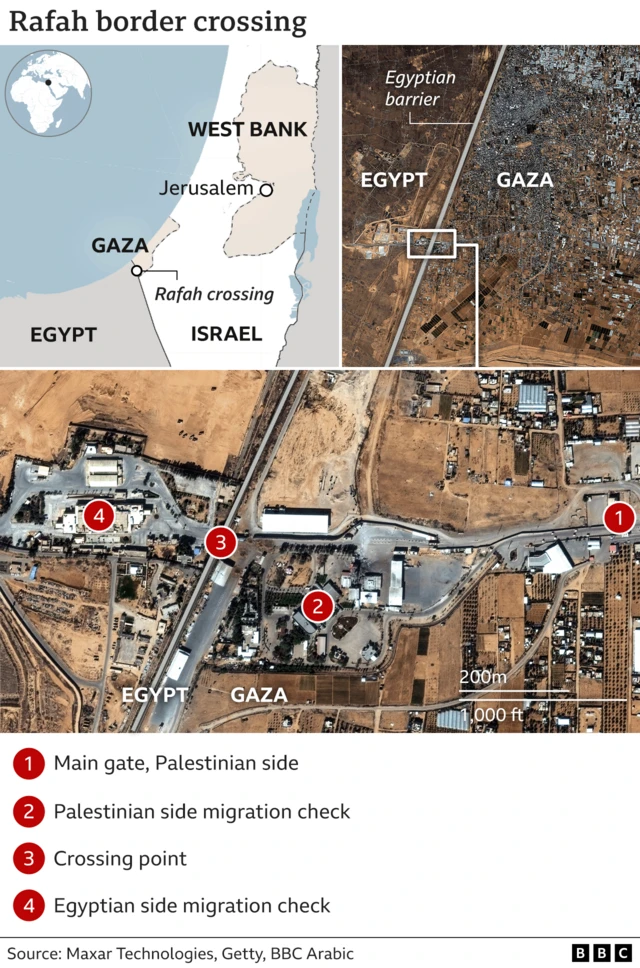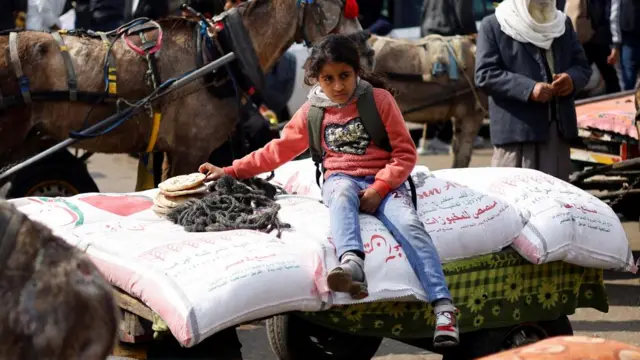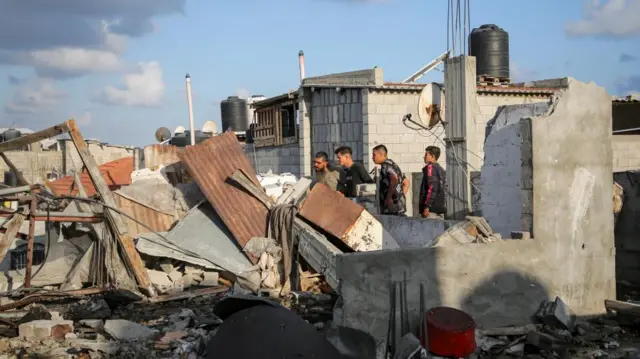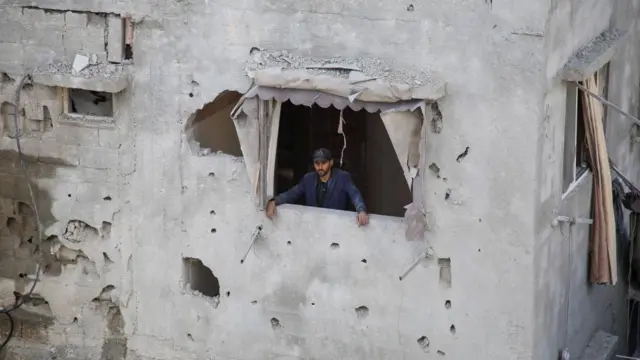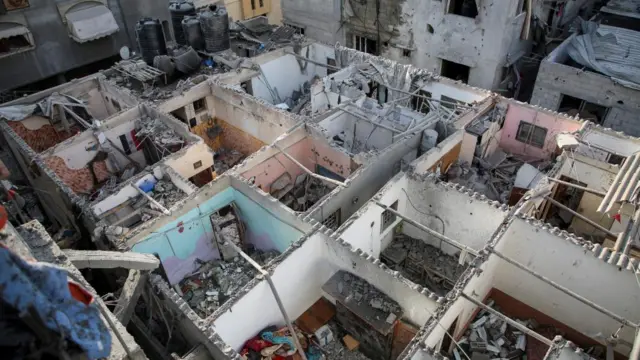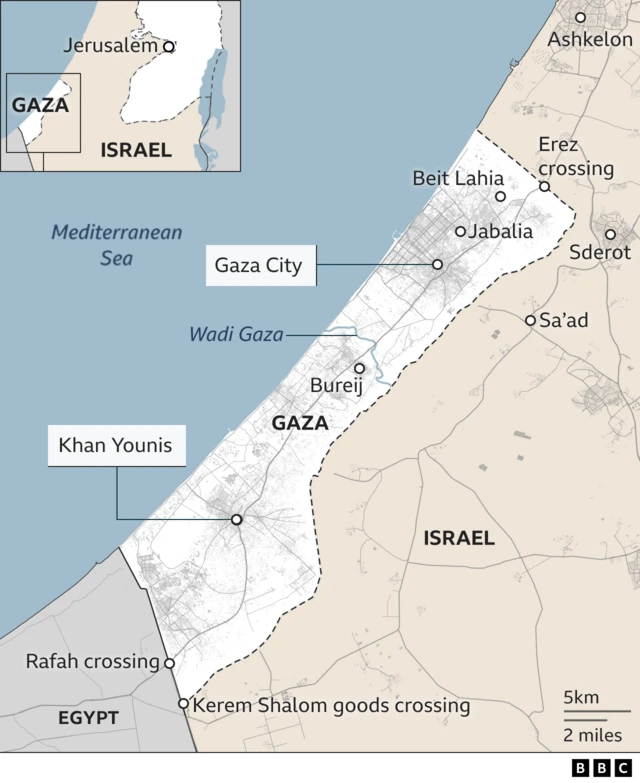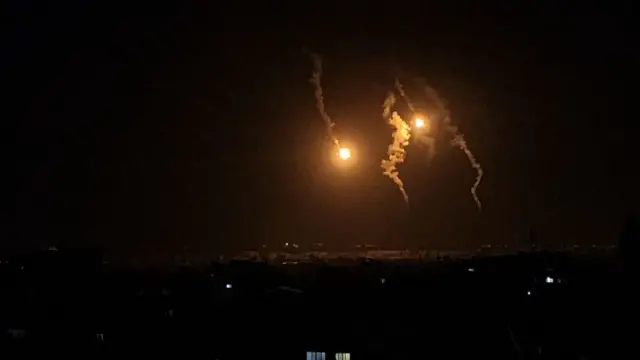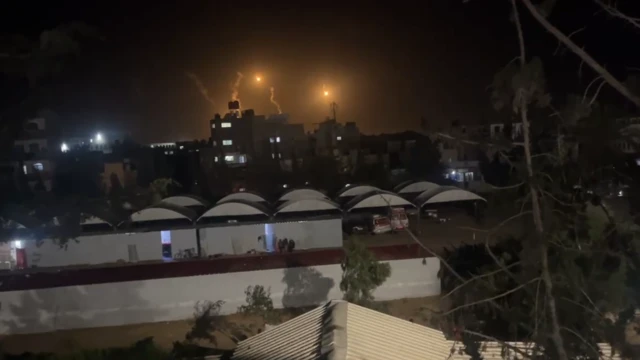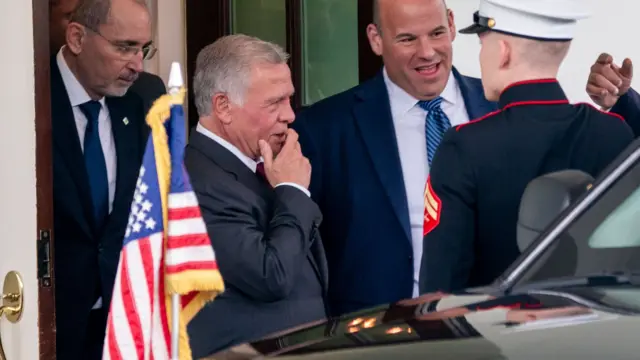Ceasefire talks being closely watched in Lebanonpublished at 08:54 BST 7 May 2024
Hugo Bachega
Reporting from Lebanon
Lebanon is also anxiously watching the negotiations for a possible ceasefire in Gaza which, according to the Shia Islamist group Hezbollah, will mean a pause in the cross-border attacks that the group has carried out on Israel since October.
The violence has led to the displacement of tens of thousands of residents on both sides of the border and raised fears of a major confrontation between Hezbollah and Israel, which fought a devastating month-long war in 2006.
There have been intense efforts, led by US envoy Amos Hochstein, to reduce tensions and reach a long-term deal. Hezbollah, a powerful political and military group supported by Iran, has said it will observe in Lebanon any ceasefire in Gaza, but that a permanent agreement can only be negotiated after the end of the war there.
Hezbollah says its attacks are in support of Hamas, aimed at diverting Israeli troops from Gaza to the border with Lebanon. In Israel, defence officials have threatened to use military force against the group – which, like Hamas, is considered a terrorist organisation by the UK, the US and others – if diplomacy fails to de-escalate the situation.
On Monday, two Israeli soldiers were killed after what Hezbollah described as a drone attack on a military base in the town of Metula. A day earlier, an Israeli airstrike killed four members of a Lebanese family in a house in the village of Meiss al Jabal, according to local officials.


